Support for Scottish independence is being boosted as increasing numbers of previously undecided voters say they are now planning to vote yes, a survey of more than 6,000 people has found.
The British Election Study (BES) found that this switch from unsure to yes was not yet significant enough to affect the overall outcome: the study found that the no vote was still at 51% compared with support for independence at 39%.
The BES, a long running government-funded programme, surveyed the same group of 6,000 voters twice this year – in February to March and May to June – and found the gap between yes and no had tightened by three points, after excluding the 2% who say they will not vote. In March, the no vote stood at 52% and yes at 37%.
Prof Ed Fieldhouse, a co-director of the BES at the University of Manchester, said that tightening was due to a larger shift towards a yes vote among undecided voters.
But even so, the no vote would win in September by a margin of 12 points based on current trends, largely because voters were not convinced that the economy and their own personal finances would improve after independence.
Among the 11% of voters who were undeclared in March, a quarter of those had since moved to yes, and 18% had decided to vote no. That included voters switching from a yes-vote to don't know, and those moving from a no-vote to don't know.
Fieldhouse said a significant advantage of the BES over commercial polls, which normally survey around 1,000 people, was that it tracked the same, much larger cohort of voters. "This means we can see not only what's happening on the surface, but also the churning beneath," he said.
"The largest number of respondents switching were from undecided to yes and from no to undecided. This spells good news for the Yes Scotland campaign which needs all the votes it can get to catch-up," Fieldhouse added.
"If all the remaining don't knows were to split in the same proportions by 18 September the yes vote would of course increase by more than the no's but not enough to win the day. On this basis the result would be 56% – 44% in favour of the union."
He said the key for Yes Scotland, the official pro-independence campaign, was to land more blows on the economy, by persuading many more voters that Scotland would prosper because of independence.
"Our research suggests that the economy is the key. Two of the three most important factors affecting voting yes in the first wave of the BES were how voters felt independence would affect the general economic situation in the country, and their own personal economic situation," Fieldhouse wrote in a BES blog.
Tellingly, these were also the two most important factors in determining switching to voting yes (from any other position).
Unfortunately for the independence campaign, however, the percentage thinking the general economy would not be worse under independence and the percentage thinking their own economic situation would improve, remained virtually unchanged between March and June.
Meanwhile, a new campaign to persuade up to 300,000 people in Scotland who are not registered to vote to join the electoral roll has been launched by the Daily Record, Electoral Commission, the Scottish TUC and the Scottish Council for Voluntary Organisations.
The latest official data shows that just over 4.1 million people from a total eligible population of 4.4m had registered to vote by December 2013, suggesting nearly 7% of Scots are not be registered.
Pollsters estimate that about 80% of Scotland's voters will take part in September's referendum, but other estimates suggest the turnout could be 75%. That has led the yes and no referendum campaigns and civic rights groups to fear that between 700,000 and 1 million Scots may not participate in the decision to decide the country's future – a group known as the missing million.
John Downie, director of public affairs at SCVO, said: "We know that the top 20% of income earners are the most likely to vote, and as many as half of people in the bottom 20% don't vote.
"This means it's the poor, least educated and most vulnerable people who aren't having their say. These are the people whose lives are most directly affected by political decisions about welfare, health and social care."
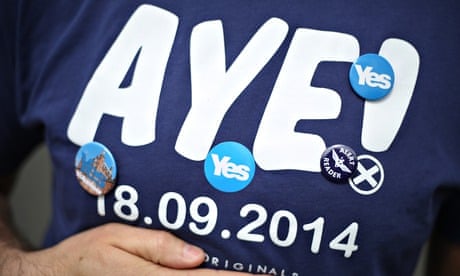

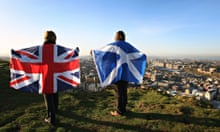

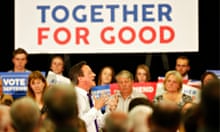
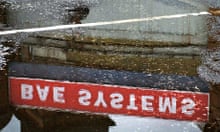

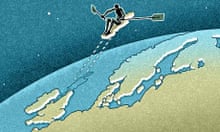
Comments (…)
Sign in or create your Guardian account to join the discussion